|
Alpacas have a long gestation period (around 11-1/2 months), so when we bred two of our alpacas, Alibi and Black Mist, last summer we spent a long time waiting for the joyous day when the new cria would arrive on our farm. We also spent weeks as their due dates drew closer wondering when that day would come (there's a lot of variability in alpaca pregnancy lengths and we've even had one go just over a year), and also hoping that when those days did come that they would proceed without any difficulties and we'd have two happy, healthy cria and two happy, healthy moms on the farm. Those days came. First was Alibi. Alibi went into labor on a Thursday morning and the birth proceeded quickly and was uneventful. However, the cria missed all the milestones in the first hour after birth and it was apparent that something was very wrong. The cria had labored breathing and it sounded like there was fluid in his lungs, and he was able to lift his head but could not sit up. I called my vet who was out of town at the time and she advised me to gently swing him head down to expel the fluid from his lungs. That didn't work. She then advised me to hold him head down over my shoulder and rub his chest to expel the fluid. That didn't work. So finally she said to put a mirror under his nose to see if his breath steamed the glass. It didn't. She advised us to go to the OSU Large Animal facility 45 minutes away in Marysville, Ohio because she suspected it was a congenital defect called choanal atresia. Choanal atresia, to put it simply (because I'm not a doctor, nor do I play one on TV), is when the opening between the trachea and the nasal cavity is closed off by tissue. It is the most common birth defect in alpacas. The prognosis is grim and even if the cria can be saved the quality of life is not good. So when we got to OSU and the vet on duty confirmed that it was choanal atresia, the decision to euthanize him was without question for us. We had Alibi with us in the hope that it was something that the cria could be treated for and, if an overnight stay was required, mom would be there for him to nurse. So we loaded Alibi back into the trailer and put the cria behind my seat in the truck and drove 45 minutes back home. When we got there, we put Alibi in a stall and laid her cria on a towel in the stall with her so that she could see him and understand that he was dead. Then the mourning began. Alibi spent the rest of that day and all of the next one (Friday) humming - frantically at times - in search of her cria. On Friday, I was sorting fiber in the barn with my back to the stall where Alibi and her cria had been, and every half hour or so I'd hear her humming behind me and turn around and see her looking into the stall and then at me while humming in distress, looking for her cria. I felt so bad for Alibi and would tell her "I'm sorry, he's gone" or "I didn't do anything with him Alibi, he's just gone", knowing of course that she couldn't understand me, but also wondering how else do you soothe a mourning alpaca (and farmer)? Then the following day, Saturday, Black Mist went into labor and her birth also proceeded quickly and without any problems. Her cria was rolling over and trying to stand the moment he was expelled from her birth canal. We put the two of them in the stall and it didn't take long before her cria was standing and ready to nurse. Alibi wasn't having it though - she had spent two days looking for her cria and now here stood a cria in the stall where she last saw her own cria. She would stand at the gate just staring at the cria with the most intense stare I've ever seen in an animal, and she would also hum to him as if he were her own. The cria would go over to the gate when she hummed, and we were growing concerned that Alibi thought that this was her cria and that the cria might be confused as to who mom was if Alibi kept humming at him. Around this time we needed to rotate the female alpacas onto another pasture anyway, so we felt it best to go ahead and do it and to leave Black Mist and her new cria behind to bond, and also to give Alibi a chance to get over her loss. Meanwhile, the cria who now had a name - Jack - was doing well with standing and walking but had some trouble finding Black Mist's teats to nurse. After I showed him where to nurse three times he finally caught on. He was very awkward though and would run and stop just short of the stall walls and I jokingly said to Wes, "I hope he isn't blind!". On Sunday, Jack had passed his meconium and was ready to go out in the pasture with Black Mist. We opened the stall gate and Black Mist walked out and started down the run, assuming Jack would be right behind her. He wasn't. Jack was going back and forth in the stall humming frantically and not even looking in the direction of the gate. I wondered if he didn't want to cross the threshold and was panicking. Black Mist realized he wasn't behind her and came running up, also humming frantically until she got to him in the stall. They connected and then she turned around to head back out and he still didn't follow, so this time I picked him up and put him over the threshold. By now Black Mist was running back to him and again they connected and this time he started to follow her, but when she turned the corner in the run he stopped and fell behind. Then he started humming frantically and turning in circles. I knew instantly what was wrong and I looked at Wes with tears welling in my eyes and said, "He's blind". Black Mist has proven to be an outstanding mother. She never left Jack behind and would go back and get him every time he fell behind and couldn't see her anymore. Once out in the open pasture though, Jack was a little wild man! He would run and then stop and listen for Black Mist's humming, and then run to her. We watched them both closely that first day to make sure that he was finding her and nursing and he seemed to be able to just fine. By the second day he was doing even better, and then every day after that he continued to improve. It became apparent that he wasn't completely blind because he would always stop short of running into a fence or wall, and when he would be walking along in the pasture and come within 3-5 feet of a chicken he would stop with a start as if it had just come into his vision and then...he would chase it! We did put a bell on Black Mist so that he can find her easily out in the pasture, but eventually he'll grow out of needing that and we're confident now that he's going to be just fine. Now, if you were to come to the farm and see him for the first time without knowing his history you may not even know that his vision is significantly impaired because he has adapted so well. So 2014 was a difficult year for alpaca births on our farm. Choanal atresia is thought to be passed on when both parents have the gene, so we are considering whether we want to breed Alibi again. If we do, it obviously won't be to the same male. Something good did come of the death of Alibi's cria though - we donated his body to Dr. Cheryl Dewitt to use in one of her alpaca neonatal seminars. I took one of her seminars in 2012 and highly recommend it to anyone planning to breed alpacas. The knowledge that I gained increased my confidence in dealing with difficult births significantly. So Alibi's cria will be used in a seminar to teach alpaca farmers like us how to save a cria - or at least when to call the vet - in birth emergency situations. As for Black Mist's cria, we don't know why he was born blind (or partially blind). We plan to have Jack gelded so that he can stay with the female alpacas that he's growing up with and also not have to deal with the fighting and competition among the male alpacas. Plus, we don't know if his condition is genetic so we wouldn't want to breed him anyway. He's going to be disappointed though because, at just 2 months old, he's proving to be quite the ladies man here on the farm! See (and hear - yes, he's orgling!) for yourself:
0 Comments
Your comment will be posted after it is approved.
Leave a Reply. |

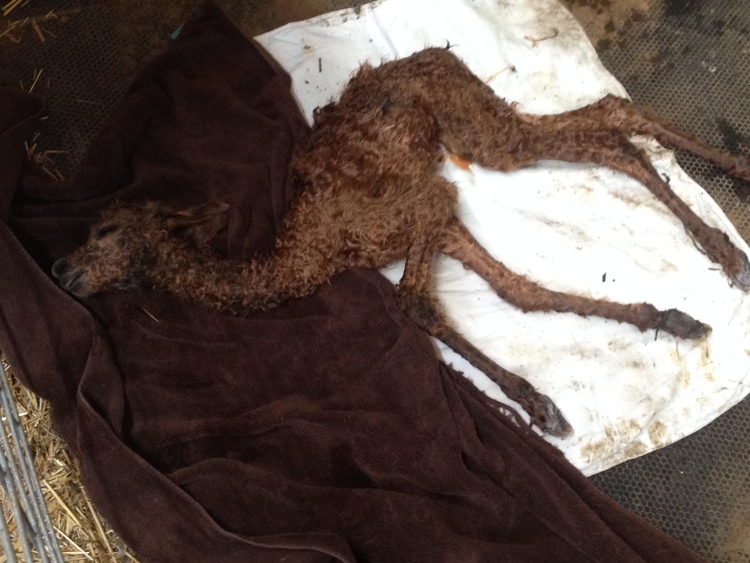
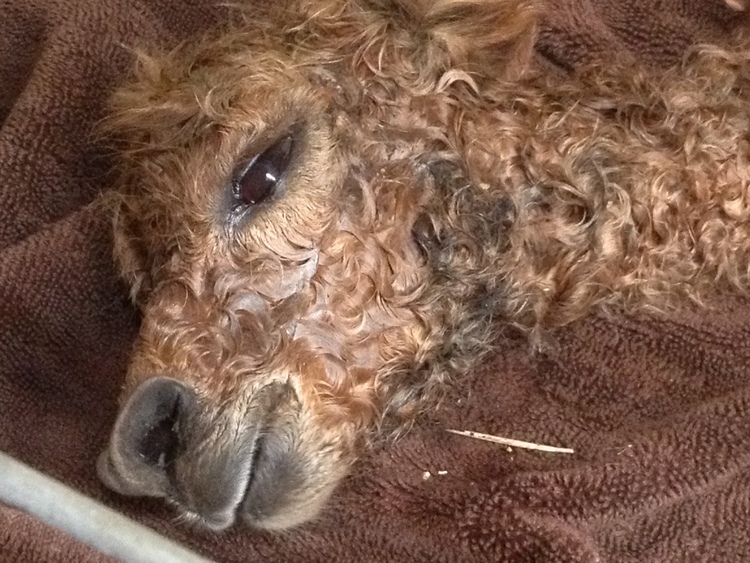
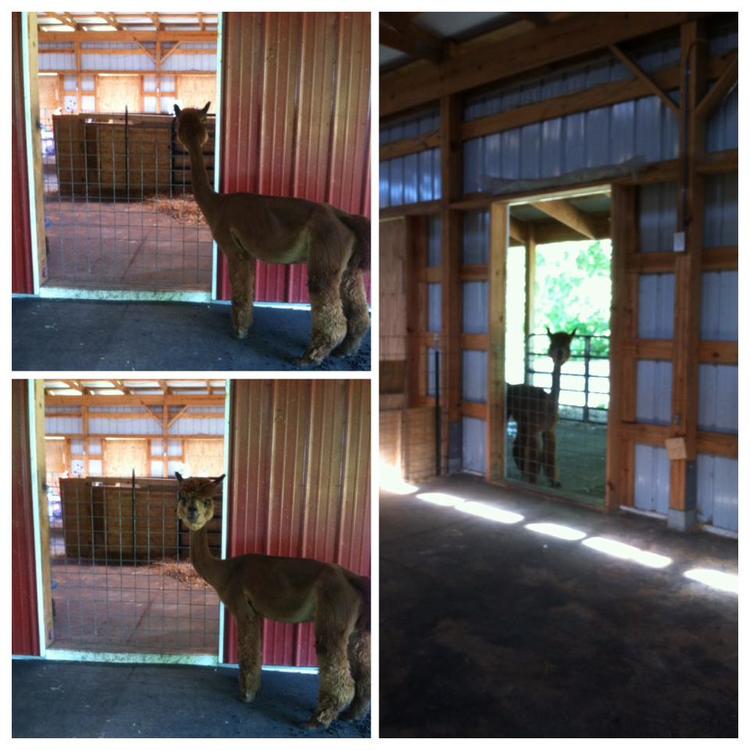
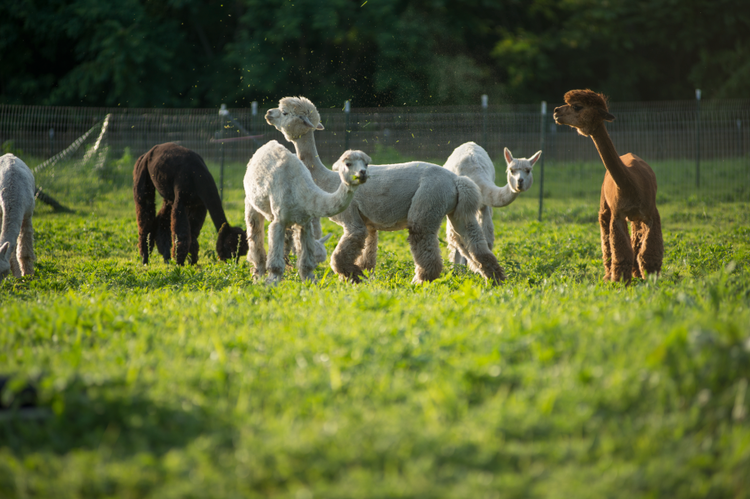
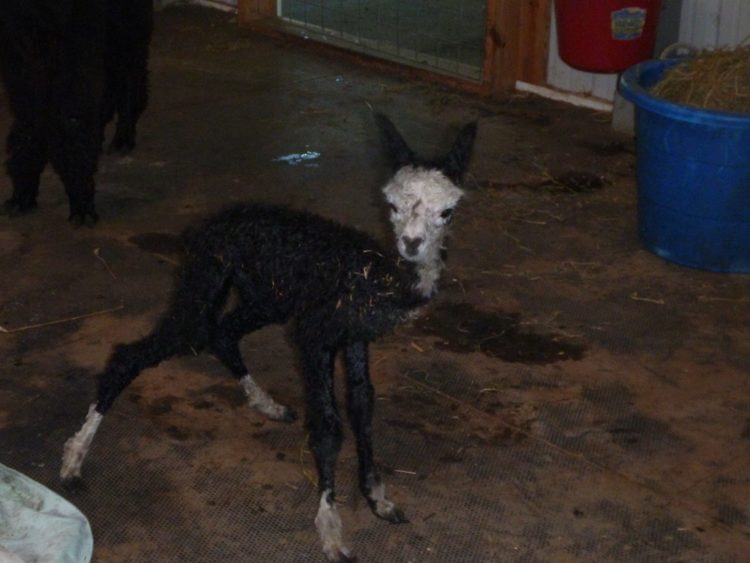
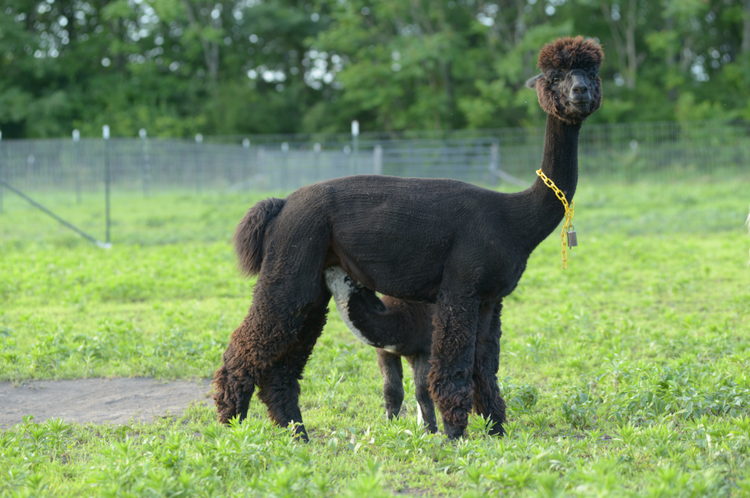
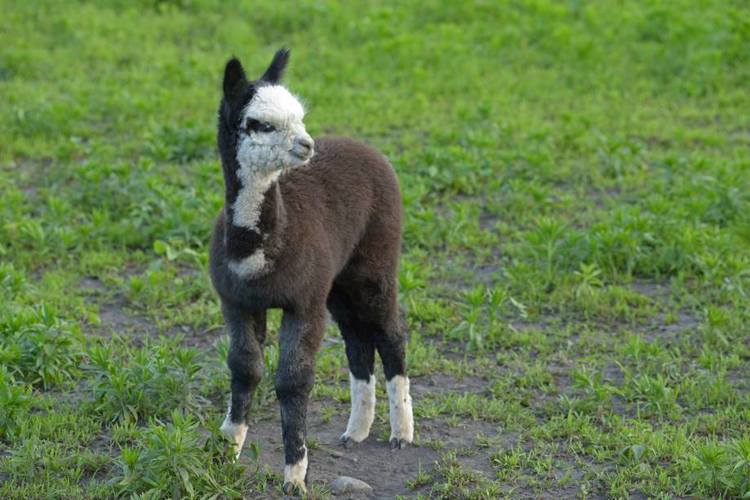
 RSS Feed
RSS Feed
